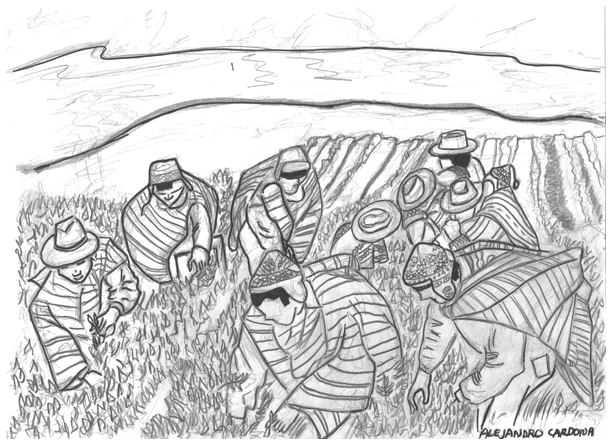Translations:
Other Pages:
Key Words
Modules
Sociology:
Home Page
Lecture Notes
Discussions
Hub
Utilities:
Site Map
Contact
Utility Documents
Useful Links
RELIGION AND AGRICULTURE
With the agricultural revolution, the theology changed
by Phil Bartle, PhD
Training Handout
Of course, the most important development in the history of humankind had effects on religions
Gods became fewer, and more often were concentrated on specific endeavours, such as warfare, reproduction and fertility.
Unlike the hunters, most agrarians saw nature as the enemy.
Ancient Egypt, formerly part of the great green belt that was continuous from what is now Morocco to what is now Delhi, became more dependent upon the flooding of the Nile while humans were busy creating the Sahara desert.
Yes, the desert is not a natural phenomenon, but is a product of two human technologies: fire and goats.
Fire was used for slash and burn agriculture in preparing the soil for planting, and goats, unlike sheep and cows, eat the grass down to below the surface of the soil, hindering it from growing up again.
The Sahara Desert continues to expand at the rate of several hundred square kilometres per year.
Meanwhile the Sun God, which was a manifestation of the Nile River God, and also manifested by the early dynasty (ie Black African) Egyptian kings, was the centre of their theology.
The calendar, and their annual cycle of rituals, were based upon the annual flooding of the Nile, on which their agricultural production became totally dependent.
Hinduism is an alloy of many agrarian beliefs, particularly pantheism and polytheism, deriving from the ancient Persian language and culture, Sanskrit, the father of all Indo-European languages. Today, Hindus see Sanskrit as the holy language.
Being in favour of tolerance, these different religions, when they came into contact with each other, explained the variations in names of Gods by saying they were different reincarnations of the same gods.
The belief shared in Hindu religions is that idea that we are all reincarnated and somehow where we are reincarnated may be a function of how good we were in previous lives.
This is the theological basis of the caste system where one cannot change castes or marry outside one’s caste from birth to death.
The objective of the religion is to get off this great circle of birth and rebirth, to attain Nirvana which is best translated as Great Nothingness, a very different concept from that of heaven.
––»«––
 |